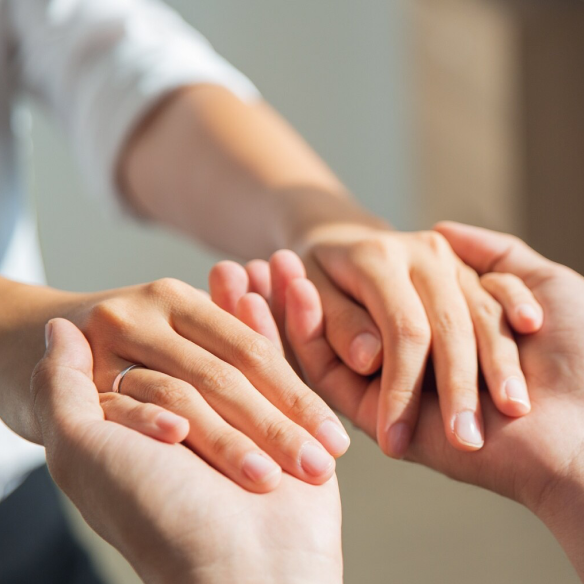Home / Treatment Options
Able To Change Recovery
Treatment
Programs
If You’re Willing, We’re Able | Comprehensive Holistic Care
Home / Treatment Options
If You’re Willing, We’re Able | Comprehensive Holistic Care



Mental health and substance use disorders wreak havoc on daily life. As the brain and body respond to symptoms and triggers, it becomes harder and harder to function in a healthy way. The negative impact extends to close friends and family members and diminishes the potential of one’s life. It doesn’t have to stay that way.
Professional treatment empowers people to counter the disruptive effects of mental health and substance use disorders on their brains and behavior to restore a healthy balance and regain control of their lives.[1] That is our purpose at Able To Change Recovery: To help clients safely overcome these challenges and build a life worth living.
To discover how we facilitate our purpose, explore the levels of care and therapeutic interventions below. For more information or to get started with us today, please reach out to our admissions team. We’ll answer any and all questions and ensure clients are prepared to start the best phase of their lives.
The key to a successful treatment experience is support. Studies show that some key indicators of effective treatment include a dignified environment, integrated treatment, evidence-based practices, and comprehensive screening and assessment.[2] This is the culture we’ve created here at Able To Change Recovery.
When someone is suffering from a mental health or substance use disorder, the idea of facing it alone can be daunting, leading one to fall back on unhealthy patterns. Our comprehensive and holistic approach offers a high degree of respect and practical support that ensures each client has the tools they need to be successful.
We’ve developed a conclusive treatment structure that offers both an immersive treatment experience and essential flexibility. No client should miss out on obligations at work, home, or school for fear of sacrificing the quality or impact of treatment. At Able To Change Recovery, our immersive, intensive approach to outpatient treatment grants peace of mind to clients and families alike.



For those battling substance use disorders and mental health conditions, there is hope. Our comprehensive and holistic solutions for mental health and drug addiction treatment are just one phone call away. Come experience our comfortable and modern treatment facilities and a powerful community of support.
[1]U.S. Department of Health and Human Services. (2023, September 25). Treatment and recovery. National Institute on Drug Abuse | National Institutes of Health. https://nida.nih.gov/publications/drugs-brains-behavior-science-addiction/treatment-recovery
[2]11 indicators of effective addiction treatment. Recovery Research Institute. (2018, May 21). https://www.recoveryanswers.org/media/11-indicators-of-effective-addiction-treatment-infographic/
Adding {{itemName}} to cart
Added {{itemName}} to cart